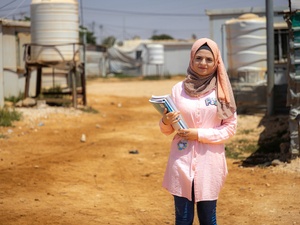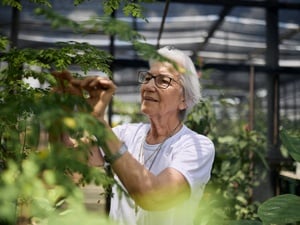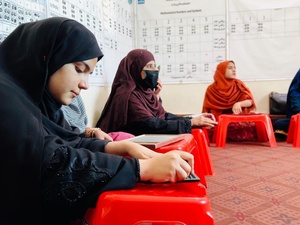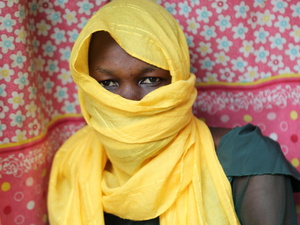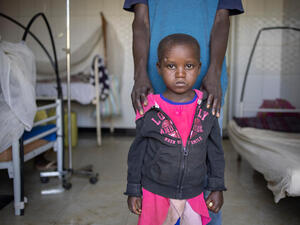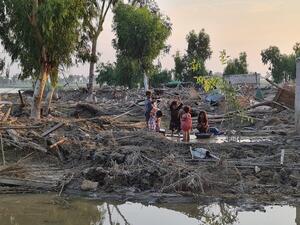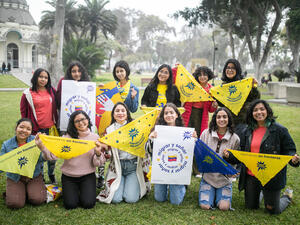UNHCR and UAE Red Crescent launch fund-raising campaign for refugee women and children
UNHCR and UAE Red Crescent launch fund-raising campaign for refugee women and children

The Sheikha Fatima Fund will help women around the world. UNHCR projects have helped girls, like these refugees in eastern Nepal, gain an education.
ABU DHABI, United Arab Emirates, September 16 (UNHCR) - The UN refugee agency and the United Arab Emirates (UAE) Red Crescent Society have launched a major fund-raising campaign to help forcibly uprooted women and children around the world.
The campaign was launched in Abu Dhabi on Monday under the patronage of Sheikha Fatima Bint Mubarak, the wife of the UAE's late President Sheikh Zayed bin Sultan Al Nahyan. The proceeds will support UNHCR projects aimed at providing education, health care, nutrition and livelihoods to some of the world's most vulnerable displaced women and children.
"Sheikha Fatima established this special fund considering the tremendous needs of refugee women and children affected by displacement," said Ali Abdullah Al Kaabi, chairman of the board of the UAE Red Crescent Society. "The campaign is a milestone in the partnership between UNHCR and the UAE Red Crescent," he added.
The 90-day campaign will draw attention to the plight of refugee women and children through lectures and a range of other activities with civil society organizations, schools and the private sector. Entrepreneurs and corporate leaders will be encouraged to take an active role in providing support.
Organizers will spread word of the campaign through text messaging, radio and TV spots, public service announcements, posters and exhibits of mock refugee camps at Abu Dhabi and Dubai international airports and in universities and shopping malls across the UAE.
"Donations will help alleviate the suffering of refugee women and children around the globe," said Hamdi Bukhari, UNHCR's acting regional representative, adding that the campaign was "a significant demonstration of solidarity from the people of the United Arab Emirates in the humanitarian field."
Sheikha Fatima, as head of the UAE Women's Association, has long championed projects aimed at improving the lives of vulnerable refugee women and children.
By Firas Kayal in Abu Dhabi, United Arab Emirates


